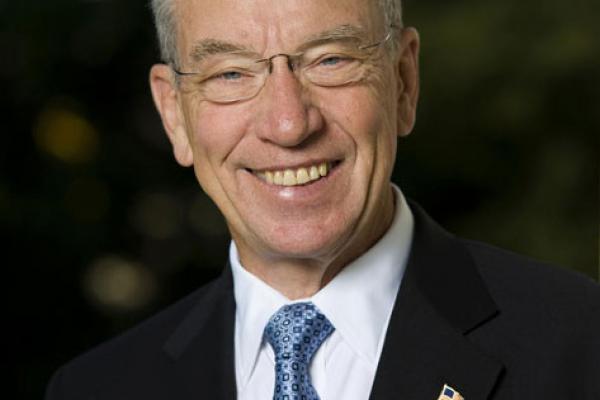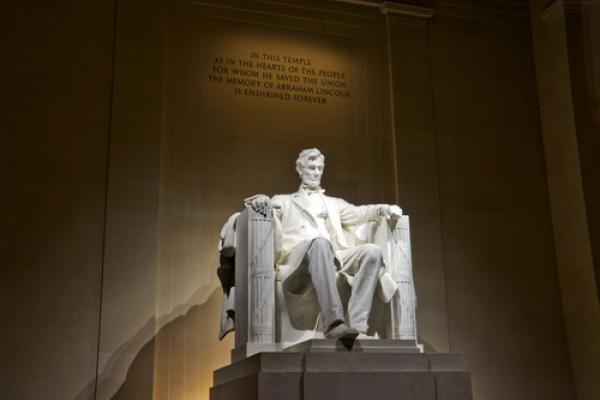A special commission created by the Evangelical Council for Financial Accountability has called for clearer IRS guidance and greater involvement among donors to address “outliers” among congregations and other nonprofits that are not being financially accountable.
Its 91-page report was a response to a request for recommendations from Sen. Charles Grassley, R-Iowa, after he concluded a three-year investigation into alleged lavish spending by six prominent broadcast ministries in 2011.
There is a line from a Gerard Manley Hopkins poem about the Virgin Mary that describes the baby Jesus as “God’s infinity, dwindled to infancy.” The line captures perfectly the beautiful but also shocking idea, central to Christianity, that the infinite God who created the universe also chose to descend, dwindle, become small, become helpless, become dependent on human beings.
Hopkins is right: the baby Jesus is not merely a sentimental or cute idea but is potentially radical, transformative, and controversial.
I can remember hearing several times as a middle and high schooler that Christians lie the most when they sing. These claims generally came from the mouths of college-aged worship leaders during emotional praise segments at mission camps and conferences. They were usually followed up with a heartfelt plea to raise honest words and promises to God during the next song. (And if we really meant it, we would ignore the burning stares of our judgmental, worldly peers and come down front for our seventh altar call.)
Though I generally don’t remember these scenes and indictments fondly, I have recently been contemplating the idea of honest worship, especially in relation to the Christmas season. I mean, how often do we memorize a whole song and sing along to it regularly without really stopping to contemplate the lyrics? And even when we do realize what we’re singing, how often do we actually let those words transform our hearts or actions or perspectives?
All of these thoughts started stewing in my mind during my Thanksgiving vacation two weeks ago. Per usual, I started playing Christmas music the day after Thanksgiving (and by the day after I mean a few days before). As I was washing dishes, belting out my favorite version of “O! Holy Night,” I was suddenly struck with the thought What am I singing? Read the lyrics below to see if you get what I mean. (Hint: my moment happened somewhere around the second verse.)
Who was Abraham Lincoln? You may get different answers depending on whom you ask. He is known as the Great Emancipator. He was a self-taught rural Kentuckyian. He was a husband and father. Also, he was a pragmatic politician. The new film, Lincoln, seeks to address this question by focusing on the political struggles for the passage of the Thirteenth Amendment to the U.S. Constitution in the last few months before Lincoln’s death.
While it may be easy to see why some people would view the film in light of contemporary politics, Lincoln’s political context and Obama’s are quite different. Facile comparisons between Lincoln and Obama do both men a disservice since they serve in completely different contexts. The Civil War is not the war against terror. The abolition of slavery is not the fiscal cliff. After a point, our attempts to connect the characters and subject matter of the film Lincoln to current events seem rather forced.
I didn’t expect to leave a Friday night screening of Lincoln thinking about Jesus.
And I definitely didn’t expect the link to be an Italian political philosopher named Grigorio Agamben.
But of Lincoln’s many triumphs as an Oscar-season contender, its lasting effect is its surprisingly mature meditation on wisdom, freedom, and the necessity of employing the former when granted the latter.
Watching Lincoln reason aloud his justification for the Emancipation Proclamation, an act he admits to his advisors was dubiously legal at best, we encounter the film’s driving question: in a time of crisis when the rules no longer apply, what kind of moral vision do we want in leadership?
A low-cost, highly successful rural housing self-help program is at risk from both sides of the aisle. A year ago, the Sojourners article Seven Ways Home described:
the “mutual self-help” model, where families in rural America first qualify for a mortgage, then partner with seven to 11 other families who will all build their homes together.
The model first gained prominence in the Central Valley of California in the 1960s through the work of the American Friends Service Committee (AFSC). The Quaker group had listened to the housing dreams of migrant farm workers, many of whom lived in squalid conditions—30 families might share one rusty faucet. In response, AFSC offered the mutual self-help model: Families would work together to build their homes, with no one moving in until all the homes were completed. This built community as well as housing. The success of this model inspired the formation of Self-Help Enterprises, based in Visalia, California, which has helped more than 5,000 families build homes. The model has been so successful that today some self-help housing is sponsored by the USDA’s Rural Development program.
Now, the Daily Yonder reports that the program is under threat:
Self-Help Housing is unique among the panoply of federal programs. Under it, nonprofit housing developers provide training, technical assistance and close supervision to small teams of future owners who build their own homes. Each family invests roughly 1,200 hours, creating what's known as "sweat equity." Construction professionals do the rest. 502 direct loans finance the debt.
The average annual income of participant families is $27,000. Most are minorities. Their repayment record is better than higher income families.
The key to this success story is the assistance provided to participant families by nonprofits. But instead of increasing funding — or at least holding funding level — the Obama administration’s FY 2013 budget reduces funding for these groups by two thirds..
The House version cuts this program by half.
This classic, highly effective pairing of citizen initiative with governement aid shouldn't be undermined by short-sighted cuts.
Elizabeth Palmberg is an associate editor of Sojourners magazine.
I learned from an article in The Sun magazine that the word eccentric comes from a Greek word that describes objects in space that don't revolve around the earth. The Greeks in ancient times saw Venus, Mercury, Mars, Jupiter, and Saturn and observed that they wandered through the sky moving in a seemingly aimless way. They called these planets asteres planetai (wandering stars). The planets were not, however, wandering. They were revolving around the sun. It was the finite view of human beings that made them seem like wanderers.
Human eccentrics move in a seemingly aimless way, too. Their movements make them seem like wanderers to other human beings with finite views. They don't wander aimlessly, though. They revolve around a different center.




